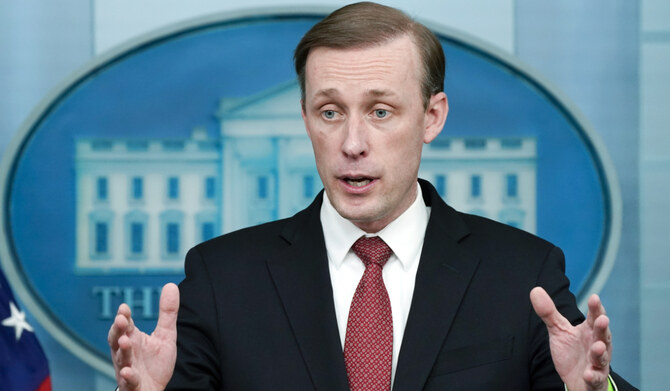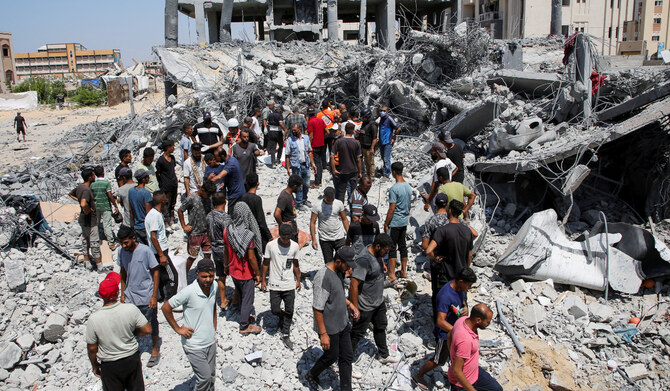CAIRO/WASHINGTON: There was no agreement on Sunday in the Gaza ceasefire talks that took place in Cairo, with neither Hamas nor Israel agreeing to several compromises presented by mediators, two Egyptian security sources said, casting doubt on the chances of success in the latest US-backed effort to end the 10-month old war.
A senior US official, however, described the talks as “constructive,” saying they were conducted in a spirit on all sides to reach “a final and implementable agreement.”
“The process will continue over the coming days through working groups to further address remaining issues and details,” said the official, speaking on the condition of anonymity, adding that the teams would remain in Cairo.
Months of on-off talks have failed to produce an agreement to end Israel’s devastating military campaign in Gaza or free the remaining hostages seized by Hamas in the militant group’s Oct. 7 attack on Israel that triggered the war.
Speaking at a news conference in Halifax, Canada, US National Security Adviser Jake Sullivan said Washington was still “feverishly” working in Cairo to get a ceasefire and a hostage deal.
Key sticking points in ongoing talks mediated by the United States, Egypt and Qatar include an Israeli presence in the so-called Philadelphi Corridor, a narrow 14.5-km-long (9-mile-long) stretch of land along Gaza’s southern border with Egypt.
Mediators put forward a number of alternatives to the presence of Israeli forces on the Philadelphi Corridor and the Netzarim Corridor which cuts across the middle of the Gaza Strip, but none were accepted by the parties, Egyptian sources said.
Israel also expressed reservations on several of the Palestinian detainees Hamas is demanding the release of, and Israel demanded their exit of Gaza if they are released, the sources added.
There has been much back and forth between the teams from Israel, the United States and Egypt since Thursday to narrow the remaining gaps, the senior US official said, in preparation for Saturday, when Qatar and Egypt met with senior representatives of Hamas to walk through the proposal in detail.
On Sunday, senior officials from Israel joined the talks to address outstanding issues with the support of mediators, the senior US official said but did not provide a definitive assessment on whether there was a breakthrough or not.
Hamas said Israel has backtracked on a commitment to withdraw troops from the Corridor and put forward other new conditions, including the screening of displaced Palestinians as they return to the enclave’s more heavily populated north when the ceasefire begins.
“We will not accept discussions about retractions from what we agreed to on July 2 or new conditions,” Hamas official Osama Hamdan told the group’s Al-Aqsa TV on Sunday.
In July, Hamas accepted a US proposal to begin talks on releasing Israeli hostages, including soldiers and men, 16 days after the first phase of an agreement aimed at ending the Gaza war, a senior Hamas source has told Reuters.
A Hamas delegation left Cairo on Sunday after holding talks with mediators, senior official Izzat El-Reshiq said, adding that the group had reiterated its demand that any agreement must stipulate a permanent ceasefire and a full Israeli withdrawal from Gaza.

























